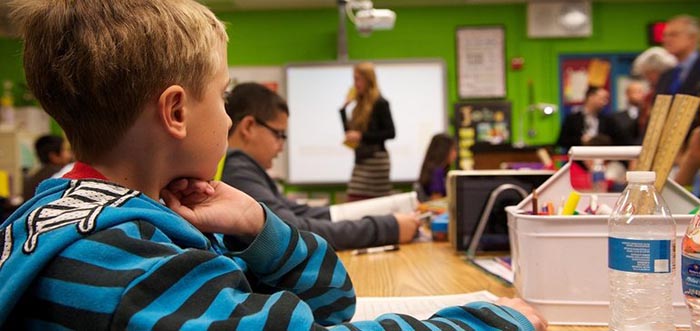
From K-12 Dive
By Shawna De La Rosa
Nov. 24, 2021
Dive Brief:
Though teacher office hours are an ideal time for middle and high school students to seek extra help, that time often goes unused — but there are ways to make this time more welcoming to easily embarrassed teenagers who tend to avoid those drop-in opportunities, according to Edutopia.
One step experts suggest educators can consider is replacing official out-of-class office hour times in favor of more convenient in-class check-in options, though students also need the self-awareness to recognize they are struggling before they know to ask for assistance.
Many students also feel uncomfortable seeking assistance, but teachers can normalize the act of asking for help by inviting other adults to share how they have done so. Shy students and English learners may also need to develop more confidence through role-playing exercises.
Dive Insight:
Instilling in students the idea that asking for help isn’t a weakness but a strength can ultimately help support the development of growth mindset, which reinforces the idea that learning is a lifelong pursuit and that an initial lack of understanding around a concept doesn’t mean it can’t eventually be mastered.
However, students who feel pressure to succeed may resist seeking assistance. To break the ice on asking for help, teachers can create lessons that encourage creative results and allow students to work through mistakes with the help of others.
A 2019 study from Nature found growth mindsets can have a positive impact on student outcomes by creating a positive attitude that boosts the ability to learn. The study, based on 12,000 high school freshmen, showed lower-achieving students with a growth mindset improved their grades.
A growth mindset also inspired students to enroll in more challenging math classes, according to the study. Freshmen who believed their intellectual abilities can be improved tipped their academic trajectory toward higher outcomes. The results were even true for those from families with low incomes.
Beyond school, growth mindset is among key social-emotional and other soft skills that benefit students later in their careers, when they must navigate a variety of challenging situations on a regular basis. These skills are particularly in-demand now by employers as many workplaces transition from more compulsory to collaborative in nature.
Photo: Flickr; US Dept. of Education
Read this and other stories at K-12 Dive

